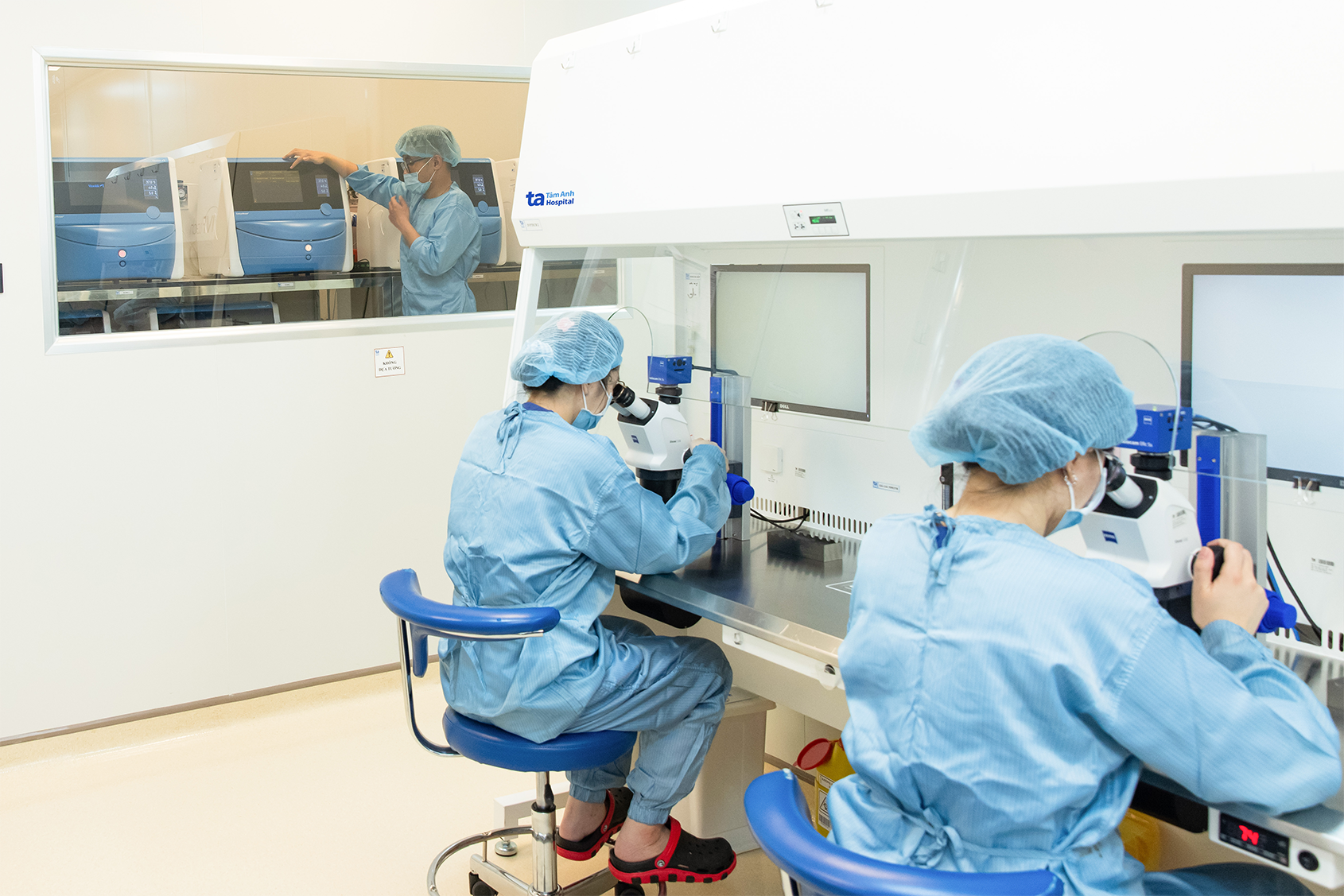Cuong and his wife welcomed their son, the first grandchild in their family, in mid-June. The healthy baby boy was born thanks to in vitro fertilization (IVF) at the Tam Anh General Hospital's Fertility Center in Ho Chi Minh City.
Cuong's semen analysis showed a low sperm count and poor motility, reducing the chances of natural conception. Several factors can contribute to this, including an unhealthy lifestyle, exposure to harmful chemicals, underlying medical conditions, and an unbalanced diet.
Doctors advised Cuong to improve his lifestyle, including his diet and exercise routine, to boost his sperm health. However, after three months, his semen analysis showed no improvement. The medical team then decided to proceed with sperm retrieval for IVF. Cuong visited the hospital every Sunday for a month, collecting four sperm samples in total.
His 24-year-old wife, Hoai, underwent ovarian stimulation under the care of Dr. Chau Hoang Phuong Thao, deputy director of the IVF center. 11 mature eggs were retrieved.
Cuong’s four sperm samples were thawed, washed, and centrifuged to isolate the healthiest sperm. Using a microscope with 200x magnification, an embryologist selected suitable sperm for intracytoplasmic sperm injection (ICSI) into the eggs, increasing the chances of successful fertilization. The embryos were then cultured in a time-lapse incubator under optimal conditions, resulting in four high-quality day-5 embryos.
Dr. Thao transferred one embryo into Hoai's uterus, resulting in a successful pregnancy. Hoai gave birth to a healthy baby boy weighing 3.4 kg. The couple has three remaining embryos cryopreserved for future use.
 |
An embryologist performs specialized IVF techniques in a "lab-within-a-lab" environment. Photo: Nguyen Thang |
An embryologist performs specialized IVF techniques in a "lab-within-a-lab" environment. Photo: Nguyen Thang
According to Dr. Thao, male infertility contributes to approximately 40% of infertility cases, equal to the rate of female infertility. Various factors contribute to male infertility, including varicocele, testicular atrophy after mumps, endocrine disorders, an unhealthy lifestyle, and environmental factors.
At the Tam Anh IVF Center, doctors employ sperm retrieval protocols to help men avoid surgery and reduce costs. In cases of azoospermia (absence of sperm), several advanced surgical techniques can be used to retrieve sperm, increasing the chances of having a biological child.
Dr. Thao recommends that couples undergo premarital reproductive health checkups to detect any abnormalities early for easier treatment. Couples who have been trying to conceive for a year without success should seek medical advice and treatment promptly to increase their chances of success and reduce costs. Unmarried men with reproductive abnormalities should consider sperm cryopreservation to preserve their fertility.
Hoai Thuong
*Patient names have been changed.












